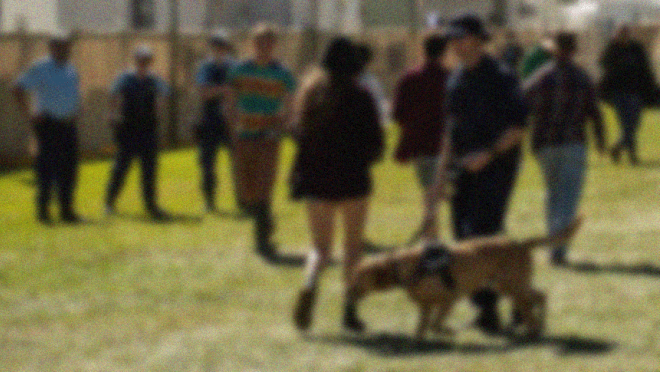NSW Labor ignores findings of its own drug summit to instead keep sniffer dogs & strip searches
The government shared yesterday that it plans to continue using the tactics despite all evidence pointing to them contributing to increased risk.

After receiving and publishing a report in May of this year on its 2024 drug summit, NSW's Labour government has ignored a range of recommendations made in its own published findings.
Yesterday, the government shared that it would continue to use sniffer dogs and strip-searches at music festivals around the state, despite evidence in its own report that shows such tactics increase the risks associated with illicit drug use.
This has also extended to the government not legislating a medical defence for people who are prescribed medicinal cannabis and who also drive, a group of people increasingly spoken of as being vulnerable and in need of government support for the impact this has on their physical and mental health.
At the time, Premier Chris Minns promoted the drug summit by sharing, "We know that drug use impacts individuals, families and communities in many different ways. The drug summit will bring people together to find new ways forward to tackle this incredibly complex and difficult problem.”
The subsequent report put forward 56 recommendations across key areas, including prevention, early intervention, community support, stigma, workforce and reform.
These recommendations, most notably, included the enactment of a drug driving defence for cannabis users, the roll of pill testing, ending the use of sniffer dogs and strip searches, and allowing more medically supervised injecting centres.
At the time, NSW Greens MLC Cate Faehrmann shared that “The report from the drug summit doesn’t go as far as what experts have told successive governments is needed to reduce drug harm and save lives. It’s clear that recommendations sought from a majority of stakeholders at the drug summit have been softened to make them politically palatable for a risk-averse premier.”
Not going "as far" includes the Premier's quelling of any conversation around decriminalisation before the summit had even started.
Minns ran for office in 2023 on a Labour platform that included holding this very drug summit.
For medical cannabis users and advocates, the promise to "investigate" a medical defence following a drug summit and its report has come as a huge disappointment. "We don’t need another ‘investigation’, we need the action already identified by the [separate] cannabis inquiry,” a spokesperson for Uniting NSW said. “They have squibbed it.”
The Unions NSW secretary, Mark Morey, argued, “Amend the Road Transport Act to treat medicinal cannabis like any other prescription medication.
Police are already highly trained to detect impaired drivers. If someone is driving while impaired by any substance, they should be off the road. But unimpaired patients following their doctor’s orders shouldn’t face court summons or potentially lose their livelihoods.
Workers and their families can’t wait for another expert working group while they’re forced to choose between managing their medical conditions and paying their bills.”
For policies impacting recreational drug use and music festivals, the police minister, Yasmin Catley, shared that, regardless of the drug summit's report, sniffer dogs and strip-searches were "important tools for the NSW police."
“We’re not changing it,” she said.
While NSW has, in the last year, implemented a pill-testing trial across a variety of festivals, the police minister was unable to provide concrete advice when a journalist asked what a young person hoping to use a pill-testing service should do when confronted by a sniffer dog instead.
Read: New South Wales to introduce year-long pill testing trial at music festivals
“NSW police are working hand in hand with NSW Health,” she replied. “We are genuinely wanting to do the trial of pill testing [and] get the evidence so that we are making good, sound policy decisions going forward.”
For strip-searches, however, government and police have paid for their mistakes financially, rather than solely with the safety of the public. Just last month, an ongoing class action involving 3,000 people strip-searched by police between 2016 and 2022 had its first win, with a woman being awarded $93,000 in damages.
The woman's legal team was quoted as saying that her experience was "akin to things that would happen during a sexual assault", and that she was ordered to "expose all parts of her body" when a male constable walked in on her being strip-searched. At the time, NSW Police had still not offered the woman an apology, despite the NSW Government's earlier admission that the NSW Police had acted unlawfully during the search.
Read: Landmark case sees 2018 strip search victim awarded $93,000 in damages by NSW government
In court, the NSW Government argued that if the entire class action succeeds, it could be liable to pay $150 million in damages. It is set to return to court at a later date.
When asked about this class action potentially rendering those 3,000 strip searches "unlawful", Catley responded that "well, look, that’s all before the court at the moment, and we need to wait until that process continues and concludes."
As Australia's summer festival season gets underway, it will become apparent very soon just how effective the government's choices are.
-
Jack Colquhoun is Mixmag ANZ's Managing Editor. Find him on Instagram.


